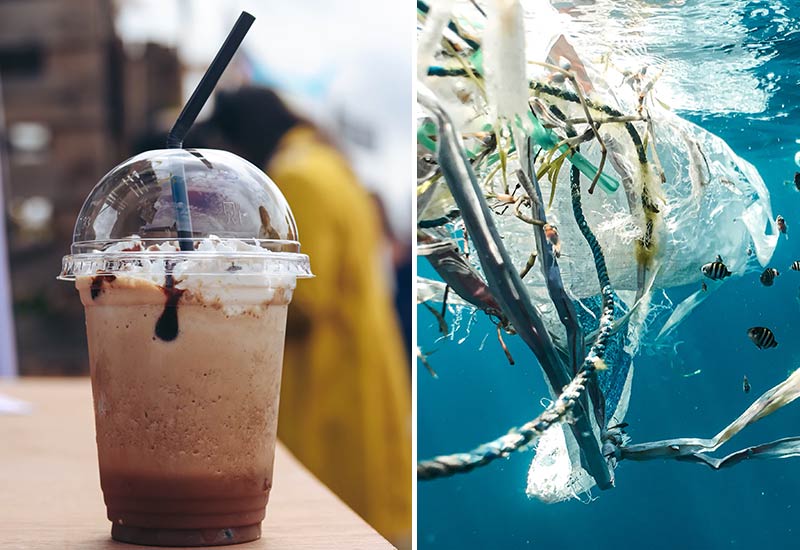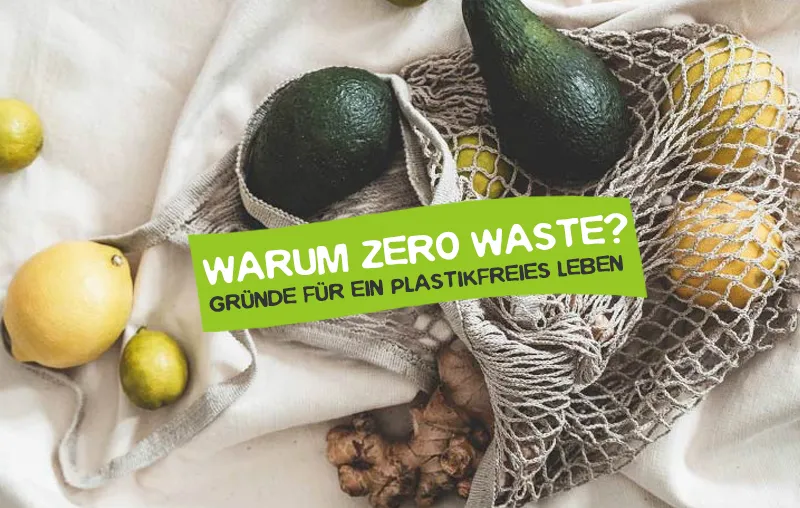Want to learn more about "sustainable shame" and how we can be more environmentally responsible when we feel shame? Then you've come to the right place. Shame is an innate characteristic of us humans - only the occasions differ. These range from embarrassments and embarrassments, to humiliations - moments that ultimately lead to the fact that you would like to sink into the ground. Corresponding feelings of shame express themselves, for example, through the blushing of the skin or the averting of the gaze.
But this unpleasant feeling, which reaches its peak especially when we are together with other people, is actually something good. Shame protects the boundaries of our intimacy and helps us, as a moral police force so to speak, to comply with the applicable norms. However, for many things that are socially accepted, it is quite possible to feel ashamed. And therefore, a certain feeling of guilt or a guilty conscience can increase the inner drive to to make one's own lifestyle more sustainable.
In this article, I would now like to briefly and concisely present some examples of so-called environmental shame and show the extent to which ecological grievances are fought with the help of emotions. Let's go!
Here you can find a short overview in advance:
- Flight shame
- Meat chamois
- Smokeshame
- Autoscham
- Palm oil cham
- Plastic shame
- Consumer Shame
- Gravel Garden Sham
- Cruise shame
- Social media shame
1. flying shame
Probably the best-known lasting shame is flight shame. It has already made it into German dictionaries and describes the guilty conscience many people feel about using a commercial airliner. The feeling of shame is triggered by the fact that they are are aware of the climate-damaging consequences of their air travel are, but they still compete.
On closer inspection, this feeling confirms the increased Environmental awareness in our society, which is extremely positive. Anyone who is ashamed of flying should try, getting from A to B by public transport such as bus and train. This is not always possible. In such cases it is advisable, if possible sustainable to flyby, for example, offsetting CO2 emissions or by reducing the personal climate budget is maintained over the year.
2. meat chamois

Another environmental shame is meat shame. Eating meat, for example, is unacceptable because of the environmentally destructive consequences of "meat production," the causation of many nutritional diseases, the Factory farming and the consciously accepted animal suffering, have fallen into disrepute. Accordingly, meat eaters often feel bad. After all, they want the Protect nature, stay healthy and Animals lovebut still eat meat. Accordingly, they often reflexively justify meat consumption with phrases like "I only eat very little meat" or "... only good meat".
This unpleasant feeling of shame can be prevented by vegan lifestyle that seeks to prevent animal suffering and exploitation, protect the planet, and promote social health. The possibly bad conscience can then subsequently even contribute to the fact that your thoughts and actions are again in harmony and you feel better.
Tip: At "Why go vegan?" you will learn my personal reasons. I am sure that the blog article will make your start much easier.
3. smoke chamois
Smoking can also trigger feelings of shame if it affects others. For example, because the toxic smoke blows into someone's face because you smell unpleasant or because a Cigarette butts in the environment lands and there becomes a danger to soil, water and animals.
The public act of shaming often leads to people being stop smoking. For example, when immediately after throwing a cigarette on the ground, you are criticized for it by a stranger.
4. car shame
Another sustainable shame, in my view, is car shame. People are ashamed of driving too much by car instead of preferring the more environmentally friendly, public transportation or bicycles. Also driving climate-damaging, sprint-eating, prestige SUVs can cause a bad one - especially because you are (co-)affecting the future of your own children and grandchildren.
I also drive a car myself - but preferably electrically with green electricity and whenever possible also in carpools. These are just two of countless Tips to travel more environmentally friendly by car to be without feeling lousy.
5. palm oil cham
A rather unknown environmental shame is also the bad conscience of consuming food and cosmetics with palm oil. Finally need species-rich rainforests make way for palm oil plantations. The orangutan, which is threatened with extinction, is representative of the species extinction and thousands of animal species that have to suffer from the high, human consumption of palm oil.
If you want to use your sense of shame in a positive way, you should Prefer food and cosmetics without palm oilto make a real difference. It is easier to recognize them, for example, with the App Codecheck.
6. plastic shame

Plastic shame is the bad feeling of often using disposable plastic items. Plastic cups, cutlery, stirrers or straws have only a short useful life and have been produced to be thrown away. Since the resulting plastic garbage in the environment. lands, causes animals to die and does not simply disappear again of its own accord, a certain social pressure has arisen to act in a more environmentally compatible manner.
Anyone wishing to avoid this embarrassment should try as far as possible to live plastic free. For example, through a Switching to reusable alternatives, such as glasses, spoons or Stainless steel drinking straws.
7. consumption shame
If you constantly buy new clothes, store online or consume cheaply produced goods, you will feel bad from time to time - provided that you understand the exploitative and destructive background of the Fast Fashion Industry and is asked by others why they are still supported. This public exposure can bring about a change in thinking.
A minimalist lifestyle helps you with this, to consume only the things you really need. In addition, it leads you to value your own consumer goods more and, for example, your personal Reduce food waste.
One more thing: Package shame could also be derived from consumer shame. It describes the fact of knowing about the consequences of constant online orders for regional trade and yet not doing anything about it.
8. gravel garden shame
As a lasting shame, I would also like to list that there is an increasing criticism towards gravel garden owners*. Gravel and crushed stone, instead of soil and plants. This convenient gardening trend is partly responsible for species extinction - mainly because bees, birds and other wildlife find no food and less shelter.
Anyone who wants to counteract this environmental shame should specifically choose a vibrant, bird-friendly, colorful and Create sustainable garden. For example, with dead wood and wildflower corners, with trees, hedges and collected rainwater.
9. cruise shame
The "floating villages" are real environmental killers and are quite rightly despised because they have a massive CO2 emissions cause and the climate change drive. Those who tell of an upcoming cruise usually automatically add to their own story, "I know it's not sustainable and all...". Triggered by a lasting sense of shame due to the catastrophically bad image of cruises.
Instead of sinking into the ground, it would be better to look into the background of cruise tourism and more environmentally friendly vacation options, as well as the sustainable travel employ
10. social media shame

Many people are also ashamed of hanging out too much on social media instead of valuing their time and using it more wisely. Digital networking may bring people together - but the typical Social media dangers also include, that the networks isolate, extremely shorten one's attention span, and ultimately consume an infinite amount of power. Accordingly, excessive social media consumption tends to be a sign of convenience and low self-control - leading to a certain sense of shame.
Often this problem is linked to smartphone addiction. What you can do about a possible cell phone addiction and the bad conscience, you can learn in the linked article.
Using lasting shame to effect positive change
Those who are not ashamed of anything are in danger of being ostracized by society. Consider possible feelings of shame as an opportunity instead of suppressing them and suffering more and more from them. To be ashamed means to admit mistakes, to protect your privacy and ultimately to protect yourself and your relationships with others.
You don't have to be ashamed of having ignorantly disrespected the environment. But if you know the effects and consequences of your actions, your decency should help you to act sensibly and in solidarity. After all, both you and all other people suffer from environmentally harmful behavior.
It's clear: not everyone is ashamed of their behavior! But if YOU feel some shame at one point or another, it's your moral values that want to help you act more sustainably. Do you have any questions, tips, or your own experiences with environmental shame that you'd like to share? Then feel free to drop me a comment.
Stay sustainable,

PS.: Do you know the feeling of cognitive dissonance? In the linked article you will now learn more about the unpleasant emotional state caused by incompatible thoughts, opinions, attitudes or desires.





